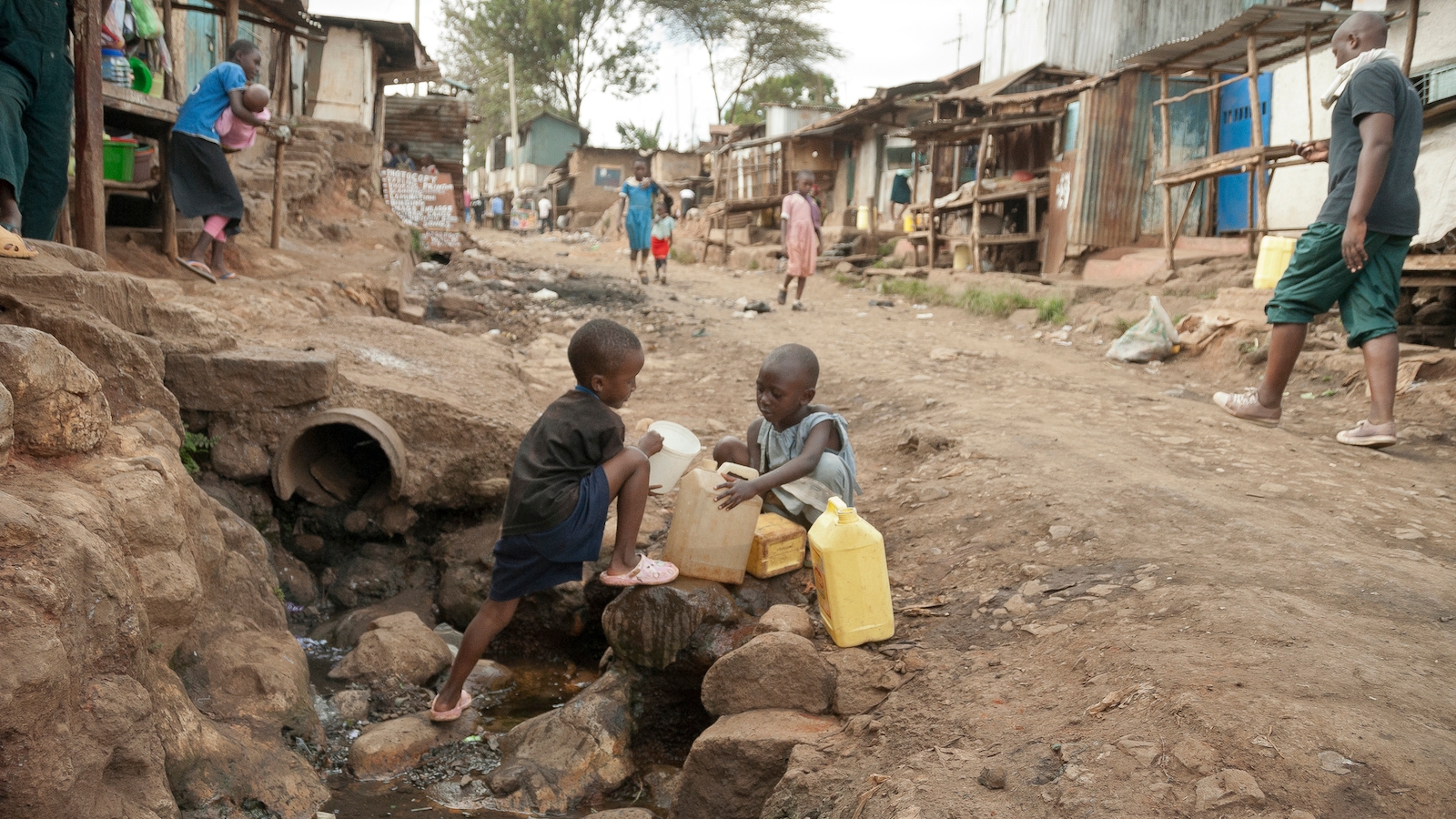Commentary on Parashat Re'eh, Deuteronomy 11:26-16:17
This week’s Torah portion, Re’eh, begins: “See, I place before you today blessing and curse.” (Deuteronomy 11:26) Today’s international curse has but one name: poverty. Unfortunately, our portion foreshadows this as inevitable, saying: “Poverty in your midst will be unceasing.” (Deuteronomy 15:11) Is poverty humankind’s eternal burden? Can the Torah give insight to reduce poverty’s menace? Re’eh offers two answers with contemporary applications. The first raises practical and halachic conflicts; the second offers hope through formalizing property rights.
Our Torah portion offers an initial simple solution: shmita, the statutory remission of debt and credit every seven years. The Torah implies that this commandment will eliminate poverty: “There will be no poor among you” (Deuteronomy 15:4). Today, politicians and rock stars endorse shmita in the form of debt relief to Heavily Indebted Poor Countries (HIPC). Through HIPC initiatives, recipient countries would be permitted to reduce or remit their foreign debt service.
Since creditor countries will surely account for debt remission as a form of aid, and since foreign aid budgets are already notoriously anemic, the question must be posed: is debt relief an efficient way to alleviate poverty? According to a World Bank study, roughly six factors influence a country’s capacity to absorb aid in order to combat poverty: low inflation, a budget surplus, openness to trade, little corruption, strong rule of law, and effective bureaucracy. These criteria are jarring if held against some major recipients of proposed HIPC debt relief such as Nigeria and Iraq. Both of these countries currently rank among the top eight most corrupt countries worldwide.
Pragmatic concerns aside, ethical questions also arise from this practice: might debt relief programs eventually diminish the mores of personal and national accountability, leading to a binge of borrowing and poorly thought-out programs? Could the initiative eventually undermine the rule of law itself? Lawlessness as a corollary of debt relief would be abhorred by our Torah portion, for Re’eh specifically condemns “every man doing what is right in his own sight.” (Deuteronomy 12:8) Furthermore, the requirements of shmita ultimately conflict with the commandment in Parashat Re’eh to lend to the poor (Deuteronomy 15:8).
With your help, My Jewish Learning can provide endless opportunities for learning, connection and discovery.
By retroactively canceling debts, shmita, like HIPC relief, may deter creditors from entering into lending relationships. In the end, if creditors stop lending to the poor, prospective borrowers and the poorest citizens will suffer most. This violation of halacha would have proved so tragic that the rabbis invented legal fictions to circumvent shmita.
The Importance of Property
If not shmita, can the Torah portion provide us with other solutions to the problem of poverty and debt? Perhaps it would be wise to consider sound anti-poverty programs that tackle the general problem of lack of ownership, an idea also evoked in this week’s portion: “The Levite has no portion nor heritance among you…Do not neglect the Levite.” (Deuteronomy 12:12,19)
This command not to neglect the Levite is reiterated in Deuteronomy 14:27. Since the rabbinic tradition is ever aware of scriptural superfluity, might the reader infer that the second utterance comprises all who are like the Levite, i.e., the landless? What may be done for people who do not own property?
One promising policy is formalizing microeconomic property rights. In my experience as a health extension agent in the Cameroonian Sahel, most land was informally leased from local chiefs and princes, who in turn held the property in trust. In the same way, the Economist reports that less than one African in 10 has formal title to the property on which she or he lives.
Reviving Dead Capital
According to Peruvian economist Hernando de Soto, this wholly “informal ownership of land and goods” and “lack of such an integrated system of property rights in today’s developing nations makes it impossible for the poor to leverage their now informal ownerships into capital (as collateral for credit).” This leaves the rural or urban poor sitting indefinitely on wealth that they can never use: “dead capital.”
De Soto and others argue for formalizing these informal arrangements, “for example by giving squatters in shanty towns land titles to the land they now live on.” At last estimate 10 years ago, the value of informally owned African houses and farms was about one trillion dollars, or 70 times the continent’s annual foreign aid.
Economist Thomas Howell notes that real estate held, but not owned, by poor people in developing nations (for example, those villages in the Cameroonian Sahel) is “more than 20 times all direct foreign investment in the Third World and more than 90 times all the foreign aid to all Third World countries over the past three decades.” What’s more, tensions between over-imprecise property titles may even ignite civil conflicts, including Côte d’Ivoire’s civil war.
Formalizing property rights is vital to eliminating poverty — let us advocate for such policies. Perhaps this is a key to fulfilling the promise of our portion: “There shall no longer be any poor among you, and surely God will bless you.” (Deuteronomy 15:4) Give the poor proper title to the property they already hold, and they will no longer be so poor.
Provided by American Jewish World Service, pursuing global justice through grassroots change
Torah
Pronunced: TORE-uh, Origin: Hebrew, the Five Books of Moses.
halacha
Pronounced: hah-lah-KHAH or huh-LUKH-uh, Origin: Hebrew, Jewish law.
halachic
Pronounced: huh-LAKH-ic, Origin: Hebrew, according to Jewish law, complying with Jewish law.



